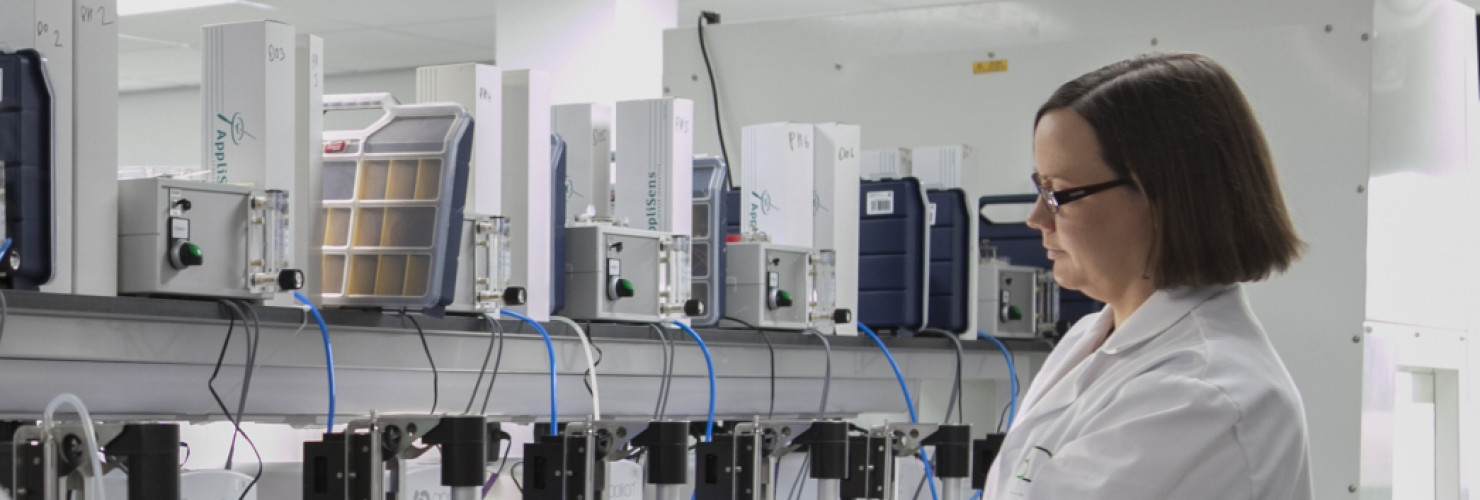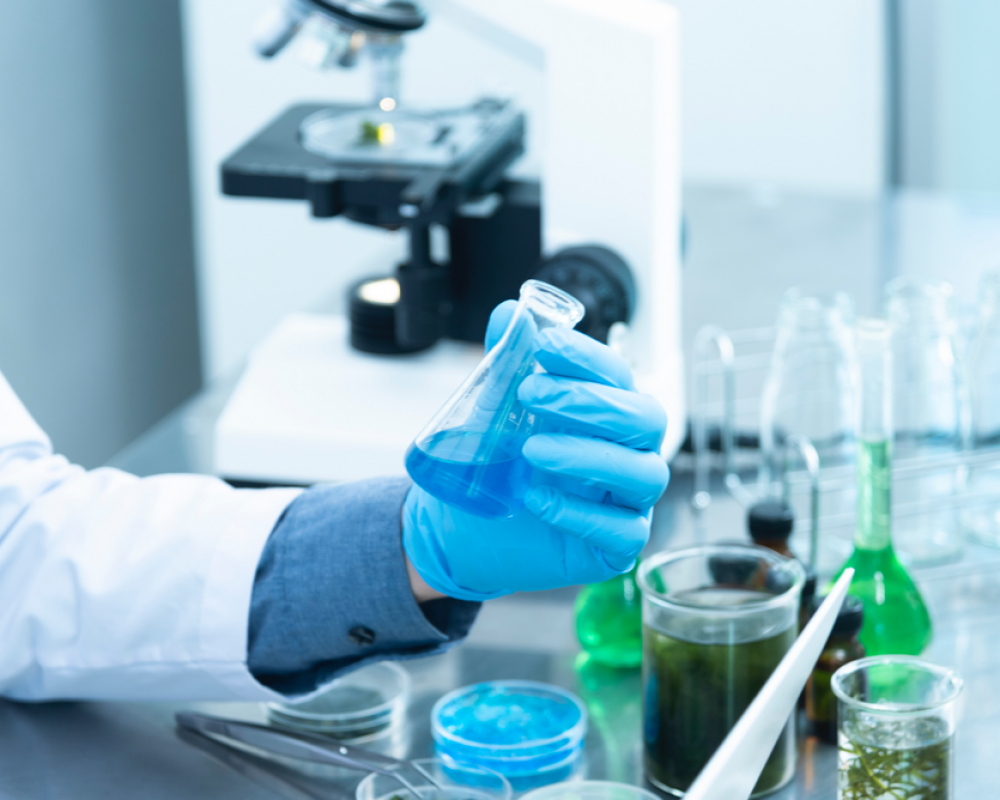
Supporting innovation in fermentation technologies
Industry is increasingly turning to microbes to produce chemicals for use in sectors such as: food and drink, personal care, pharmaceuticals and biofuels. The THYME project has brought together academics from the universities of York, Teesside and Hull, along with industry partners, for new research that is generating exciting innovations across the whole fermentation process.
6 proof of concept projects funded
Improving process efficiency
A microbioreactor under development at Teesside University will help to improve bioprocesses and reduce the cost of future innovation. With miniaturised data collection and analytical systems, it can rapidly and cheaply obtain high-quality information on growth conditions, cell density, physiology and productivity. The Biorenewables Development Centre (BDC) is testing the system, with the help of industrial partners Unilever, Quorn and Croda. Researchers at these two institutes are also collaborating on a second project, which is using an established process modelling system - the Britest Toolkit - to optimise the production of lactic acid through fermentation of woody waste
Developing more sustainable feedstocks
In the future, medicines could be produced from food waste, with the help of research from the BDC and the University of Hull, working with GlaxoSmithKline. The microbes that make antibiotics are currently fed on high-grade materials, such as wheat. A THYME-funded project is looking to see if such feedstocks can be replaced by starchy by-products from food manufacturing.
Muhammad Safwan Akram, Teesside University said:
THYME has brought together a unique set of skills and expertise to provide real benefits for a biotech company which is making an impact globally.
New membranes for the recovery of solvents
Researchers at the University of Hull and the BDC are developing novel, membrane-based processes for the recovery of solvents or other high-value compounds from processes such as fermentation or cell culturing. The membranes would replace existing, energy intensive methods for solvent recovery and are being assessed by the industrial partners, Nanjing industrial Technology Research Institute of Membranes.
Better microbes for improved fermentation
Researchers at Teesside and York are working on two projects to make fermentation more productive and efficient by improving the microbes that drive the process. One project is selecting better yeast strains for use in the production of bioethanol, drawing together synthetic biology, metabolomics and proteomics expertise across these universities and at industrial partner Ingenza. A second project is working with Fujifilm Diosynth to better understand and enhance protein production by the bacterium Escherichia coli.
Revolutionising operator training
Operator error can lead to significant losses within biopharmaceutical processes, with the potential to cost millions of pounds in lost batches. Researchers at Teesside University, are developing the use of virtual reality to train process operators and so avoid costly mistakes, reduce waste and improve productivity.

Research fellowship funded at Teesside University
24 research partnerships catalysed
Total of £249,596 funding
For more information please visit: www.thyme.biovale.org

The THYME project is supported by Research England's Connecting Capabilities Fund.
The THYME project was completed in June 2022.
